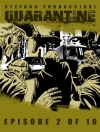Sodom and Gomorrah (1921/22) is the fourth volume of Marcel Proust’s seven-part novel In Search of Lost Time. Being the last volume that had Proust’s direct involvement, Sodom and Gomorrah is a story of love, jealousy and family from a master of Modernist literature. Praised by Virginia Woolf, Vladimir Nabokov, Michael Chabon, and Graham Greene, In Search of Lost Time explores the nature of memory and time while illuminating the history of homosexuality in nineteenth century Europe.
The narrator finally reveals what he witnessed before Princess de. Guermantes’ party: Charlus followed Jupien into his shop and the two shared an intimate encounter. Returning to the festivities, the narrator reflects on the very nature of inverts and the secret society of which they must belong. Attempting to put the suffering of his grandmother out of his mind, he tries with some success to pursue the companionship of Albertine; only to grow suspicious of her activities and possible lesbianism. Trying desperately to find a place in this social circle, the narrator finds himself engulfed by jealousy and trapped in a world of romance, lust, and secrets of which he is now willfully taking part.
This edition of Marcel Proust’s Sodom and Gomorrah is a classic work of French literature reimagined for modern readers.
Since our inception in 2020, Mint Editions has kept sustainability and innovation at the forefront of our mission. Each and every Mint Edition title gets a fresh, professionally typeset manuscript and a dazzling new cover, all while maintaining the integrity of the original book.
With thousands of titles in our collection, we aim to spotlight diverse public domain works to help them find modern audiences. Mint Editions celebrates a breadth of literary works, curated from both canonical and overlooked classics from writers around the globe.
Yazar hakkında
Marcel Proust (1871-1922) was a French novelist. Born in Auteuil, France at the beginning of the Third Republic, he was raised by Adrien Proust, a successful epidemiologist, and Jeanne Clémence, an educated woman from a wealthy Jewish Alsatian family. At nine, Proust suffered his first asthma attack and was sent to the village of Illiers, where much of his work is based. He experienced poor health throughout his time as a pupil at the Lycée Condorcet and then as a member of the French army in Orléans. Living in Paris, Proust managed to make connections with prominent social and literary circles that would enrich his writing as well as help him find publication later in life. In 1896, with the help of acclaimed poet and novelist Anatole France, Proust published his debut book Les plaisirs et les jours, a collection of prose poems and novellas. As his health deteriorated, Proust confined himself to his bedroom at his parents’ apartment, where he slept during the day and worked all night on his magnum opus In Search of Lost Time, a seven-part novel published between 1913 and 1927. Beginning with Swann’s Way (1913) and ending with Time Regained (1927), In Search of Lost Time is a semi-autobiographical work of fiction in which Proust explores the nature of memory, the decline of the French aristocracy, and aspects of his personal identity, including his homosexuality. Considered a masterpiece of Modernist literature, Proust’s novel has inspired and mystified generations of readers, including Virginia Woolf, Vladimir Nabokov, Graham Greene, and Somerset Maugham.












